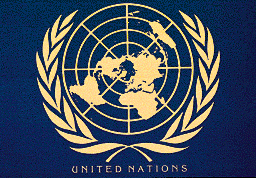UN members tackle first negotiations to reform UN Security Council
 New York - United Nations members were to begin on Thursday the first round of inter-governmental negotiations to reform the UN Security Council, which holds authority over issues of peace and security around the world.
New York - United Nations members were to begin on Thursday the first round of inter-governmental negotiations to reform the UN Security Council, which holds authority over issues of peace and security around the world.
The negotiations will be held behind closed doors among government envoys at UN headquarters in New York, marking the first step at reforming the 15-nation council following 16 years of on-and-off discussions.
Last year, members finally agreed that it was time to negotiate seriously.
The council has been strongly criticized for monopolizing the peace and security issues and for the lack of transparency in its decision-making process.
A majority of UN members resent the veto power of the five permanent members, which are the victors of World War II: the United States, Russia, France, Britain and China, referred to in UN parlance as the 5Ps.
Ten of the council's 15 nations are elected to serve two-year terms, representing the world's five regions.
UN General Assembly President Miguel d'Escoto Brockmann of Nicaragua informed the membership on Wednesday of the timetable of negotiations, which runs through this summer.
"We support early reform of the Security Council - an essential element of overall effort to reform the United Nations - in order to make it more broadly representative, efficient and transparent," he said in a letter to the 192 UN members.
Miguel d'Escoto has himself denounced the world organization as undemocratic, saying only a reformed council can effectively and legitimately implement its decisions.
The negotiations that were to begin on Thursday will take up five key issues: categories of members, the question of the veto, now enjoyed only by the 5Ps, regional representation and the size of an enlarged council.
Miguel d'Escoto urged the negotiators to focus on the five key issues in order to "maximize the chances of success" in the reform process.
Developing countries have been demanding more say in matters of global peace and security, rejecting the political dominance of the P5. They have called for enlarging the council from the current 15 to 21 or 25 members, to include the emerging nations.
On the other hand, developed countries like Germany and Japan have demanded permanent seats and respect on a par with the current five permanent members.
During discussions in the late 1990s, Germany, Japan, India, Brazil, South Africa and Nigeria demanded permanent seats on a reformed council.
But countries like South Korea, Italy, Pakistan and China are opposed to the candidates for permanent seats. South Korea and China are opposed to Japan becoming a permanent member because of its role during World War II. Italy is opposed to Germany and Pakistan is opposed to India. (dpa)